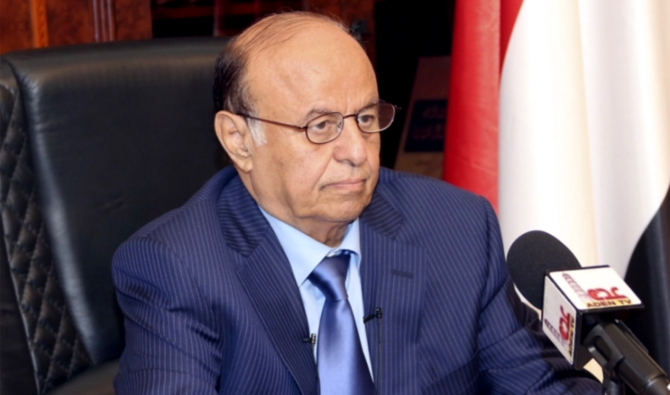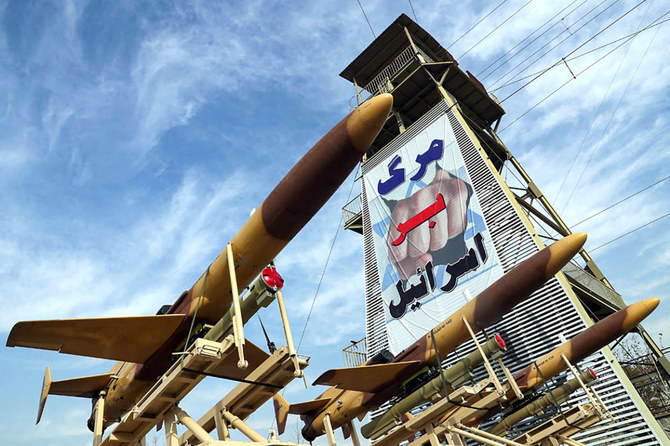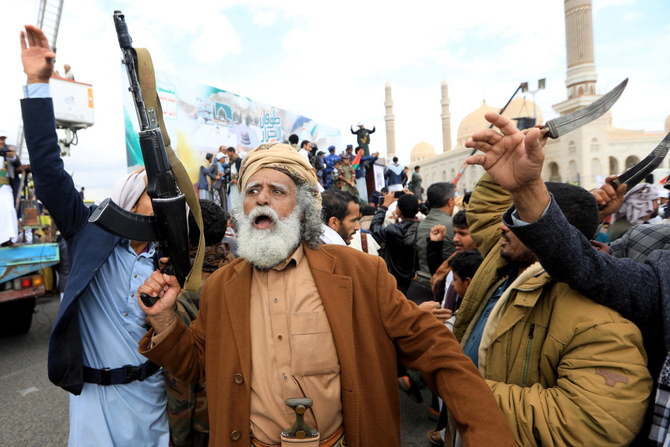AL-MUKALLA: Yemeni President Abed Rabbo Mansour Hadi rejected a peace proposal presented by UN Special Envoy for Yemen Martin Griffiths on Monday.
According to a government official, the proposal fell outside the agreed framework to achieve peace in the country.
The internationally recognized Yemeni government will only support peace initiatives that comply with the GCC Initiative, the outcomes of the National Dialogue Conference and UN Security Council Resolution 2216, official sources told Arab News on Tuesday.
The Security Council Resolution 2216 recognizes the Hadi-led government’s authority over Yemen and requires the Iran-backed Houthis to disarm and abandon territory under their control.
Despite Hadi’s rejection of the agreement, a report in SABA, Yemen’s official news agency, said the leader still fully supported Griffith’s efforts to broker a peace deal.
The report added that the government had already offered many concessions to the Houthis to reach an amicable solution.
Hadi also accused Iran-backed militias of violating the UN-brokered Stockholm Agreement through growing military activity in the western province of Hodeidah.
Another senior government official told Arab News that Hadi rejected two Houthi demands included in the Joint Declaration presented by Griffiths — maintaining control of an oil pipeline from the central city of Marib to the western city of Hodeidah and exempting aircraft departing from Houthi-controlled airports from inspections.
“Instead of agreeing to emptying the decaying Safer oil tanker, the Houthis demanded the resumption of oil pumping to the same facility,” the official said.
On Tuesday, the UN envoy said on Twitter: “Last evening, I met with President Hadi. We discussed the UN efforts to mediate a resolution to the conflict in Yemen, and exchanged views on the draft of the Joint Declaration.”
In recent months, the UN envoy has urged Yemen’s warring parties to accept the Joint Declaration, a peace proposal that requires the internationally recognized government and Iran-backed Houthis to enter a nationwide truce and introduce humanitarian and economic measures to alleviate the suffering of the Yemeni people.
After halting hostilities, both parties can engage in direct peace talks aimed at reaching a comprehensive peace settlement. The two parties on Sept. 10 received a revised draft of the Joint Declaration that included their comments, edits and suggestions, Griffiths said.
Yemeni parliament speaker Sultan Al-Barakani told Griffiths in Riyadh on Monday that the UN’s tolerance of the Houthis has encouraged them to violate truces and agreements, shell cities, target Saudi Arabia with ballistic missiles and drones and reject warnings about the decaying Safer tanker, SABA reported.
Yemen’s Vice President Ali Mohsen Al-Ahmer also repeated the government’s demands to include the three requirements in peace proposals.
Al-Ahmer told outgoing French Ambassador to Yemen Christian Tiesto in Riyadh that the Yemeni government will only support peace deals that follow the agreed framework.
Yasser Al-Yafae, an Aden-based political analyst, told Arab News that the government should avoid taking a tough stance on the three requirements because the Yemen conflict has “produced new powerful forces that oppose the framework.”
He said: “Since 2015, the war has produced a new reality as the Houthi movement has gained control over large areas in northern Yemen and is expanding. The Southern Transitional Council that appeared in 2017 controls important parts in the south. Insisting on the references means continuing the war.”
Fierce fighting
Fighting intensified on Monday and Tuesday in almost all major battlefields in northern, western and southern Yemen.
On Tuesday, local army officers told Arab News that heavy mortar, canon and katyusha shelling on residential areas in the southern city of Taiz killed five civilians and wounded many others.
Abdul Basit Al-Baher, a Yemeni army spokesman in Taiz, said that army troops exchanged heavy fire with Houthi fighters.
“The army troops responded to the Houthi shelling, targeting the source of the fire. They have mobilized a huge number of forces and targeted Taiz with all kinds of heavy weapons,” Al-Baher said.
In the northern province of Jouf, army commanders said that Arab coalition warplanes hit a convoy of Houthi military vehicles, killing several militants, including a senior field commander.
Another Houthi military leader, Col. Sultan Abdul Kareem, was killed along with five associates in fighting with government forces in Jouf’s Beir Al-Mazareq area.
On Monday, hundreds of Houthis in Sanaa attended the funeral of Mohammed Yahiya Al-Houri, a field military commander who was killed in fighting with government forces in the western province of Hodeidah earlier this week.






















